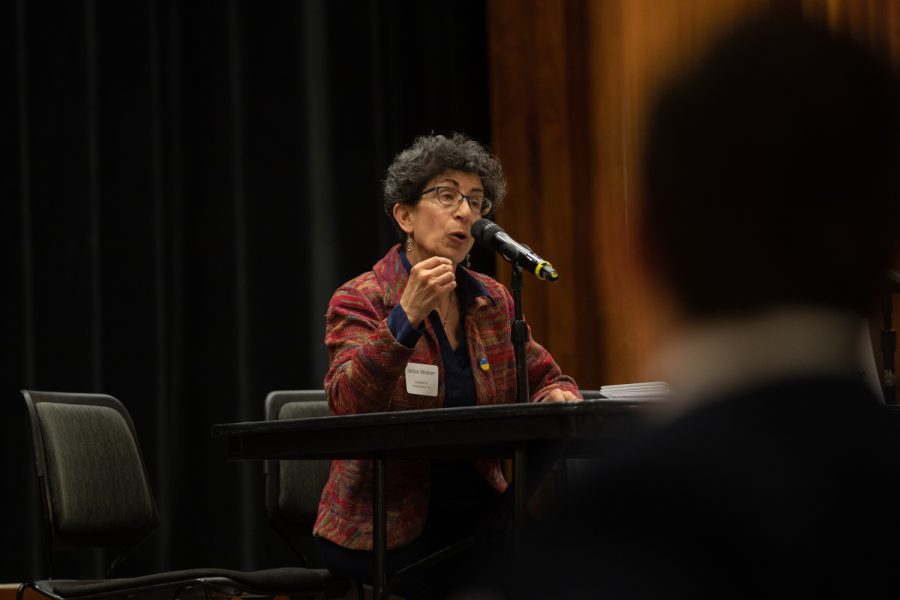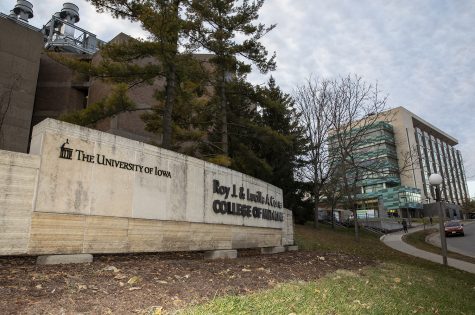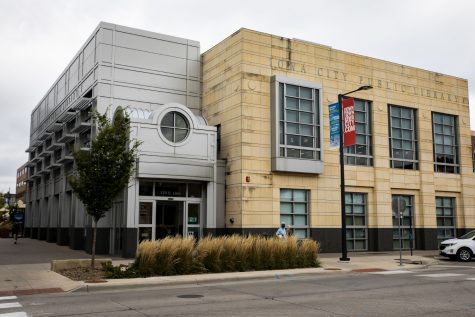Guest Column | Our future is at stake
State Senate Candidate, Janice Weiner (D-45), on the future of health care in Iowa.
Janice Weiner, democratic candidate running for Iowa Senate District 45, speaks during the University of Iowa Faculty Staff Legislative Forum at the Iowa Memorial Union on Monday, April 18, 2022.
October 19, 2022
Throw a stone into a pond and the waves move out in concentric circles, eventually reaching shores far away.
Imagine Iowa as that pond and an abortion ban as the stone. If the Iowa Legislature bans abortion or the courts instate the six-week ban, per Gov. Kim Reynolds’ Aug. 11 filing, it will have far-reaching consequences.
At the center, where that stone strikes the water, will be every pregnant person who needs or might need gynecological care in the future, not just abortion.
We already have the fewest number of OB/GYN providers per female in the U.S., as well as swaths of counties where no OB/GYN care is available and where birthing units have closed.
And those OB/GYNs who remain? They’ll be trying to parse a law written by legislators who have no medical training; they’ll be looking over their shoulders to hospital lawyers for advice, rather than trusting their medical instincts.
That next ripple? That’s the University of Iowa Carver College of Medicine and its residency program, the state’s only accredited OB/GYN training program. Both its accreditation and the medical school’s ability to attract quality resident applicants will be impacted.
Abortion training (medical procedures used in many circumstances) is required for accreditation. If abortion is outlawed and residents can’t pursue the training here, they would need to travel out of state – away from their home and family, with all the attendant costs, including pricey out-of-state insurance.
The next larger ripple will impact the UI itself, an economic engine for both this region and the state. In fiscal 2021, as an R1 research university, the UI pulled in $702.4 million in public and private research funding. The university’s annual economic impact on the state and beyond is in the billions. UI Hospitals and Clinics also serves as a regional medical center, especially crucial as waves of COVID-19 struck this state and smaller hospitals sent their sickest patients here.
It will become harder to attract quality faculty and staff, not just to the medical school and UIHC, but to the university as a whole. Who will want to bring their families to a place where they, their partner, their kids, and grandkids may be denied the healthcare they need? And for those who do come – unlike the draw UI has been for decades, where faculty and staff were recruited, planned to stay for a year or two but became attached to the community and put down roots – they may come for just those couple of years and move on.
As a state, how much will we lose in revenue? In intellectual and human capital? In reputation? In federal grant funding? How will we calculate the research projects that were never applied for, the people who never came to teach and influence young people, the start-ups that never happened, the growth that could have been – and the young people who leave as soon as they finish high school or secondary education?
This vision is hardly dystopian. Iowa already has a serious brain drain (the 10th-worst percentage difference in the country between the number of college graduates we produce and the number of graduates living in the state). We can’t know all who have left or decided not to come, though there are anecdotes aplenty. But we do know that people value their freedoms and their right to medical care.
We underestimate the effects of an abortion ban at our peril. Throw that one stone and those waves – they will hit shores we never imagined.
––Janice Weiner, Iowa City, IA
Columns reflect the opinions of the authors and are not necessarily those of the Editorial Board, The Daily Iowan, or other organizations in which the author may be involved.













